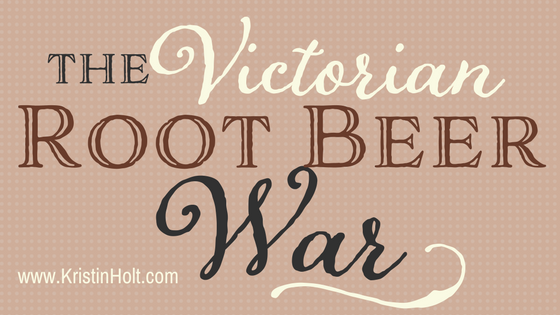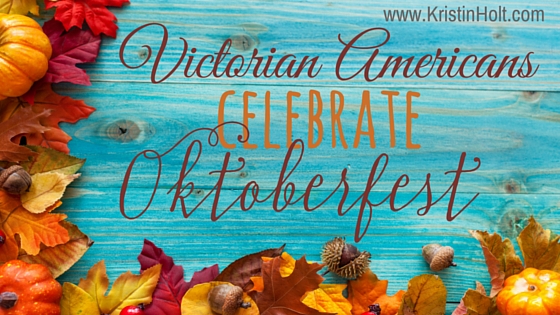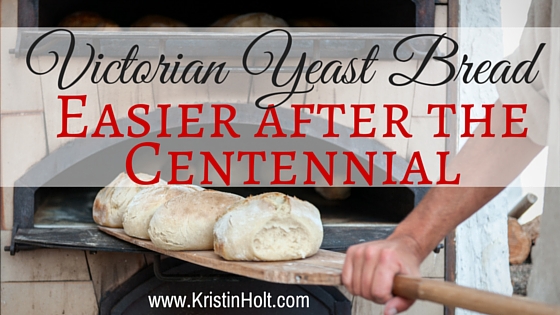
by Kristin Holt | Feb 18, 2021 | Articles
Nineteenth century breads often called for “a teacup of yeast,” a huge amount compared to today’s recipes. Victorian-era housekeepers (e.g. wives) made their yeast. And continued to whip up fresh batches of yeast (with a touch of the last batch as a starter) well after commercially prepared yeast waited on grocer’s shelves.

by Kristin Holt | Jul 27, 2017 | Articles
Hires Root Beer, from its debut in the mid-1870s, was sold as a refreshing beverage (with no medicinal expectations). The name, chosen by Charles H. Hires, to appeal to tough coal miners, who’d never find “root tea” attractive, ended up causing Hires Co. a bit of trouble with Women’s Christian Temperance Union (WCTU). Who knew that “beer” in a name, and the common knowledge that root beer extract was percolated with alcohol (though the finished drink had no more than a whole loaf of homemade bread), to cause banning of the beverage?

by Kristin Holt | Sep 17, 2016 | Articles
Oktoberfest is a multi-national celebration of German culture, held annually in Munich, Germany and in many other locations worldwide. German immigrants to the United States before and during the Victorian Era brought the custom with them. The sixteen-day festival of parades, music, food, and folkloric dancing begins on the third Saturday of September each year. The 2016 holiday begins today, September 17, 2016.

by Kristin Holt | Oct 19, 2015 | Articles
At the Centennial Exhibition in Philadelphia, Pennsylvania, Charles Louis Fleishmann offered pieces of freshly baked bread made with the world’s very first commercially prepared yeast from an exhibit modeled after a Vienna Bakery. An increase demand for Fleischmann’s yeast soon followed, bringing about the building of Fleischmann plants in New York. In this article, I share five key concepts about 19th century bread baking that stood out as surprising key concepts–and I’m a bread baker…so finding myself caught off guard by such research was really something.












